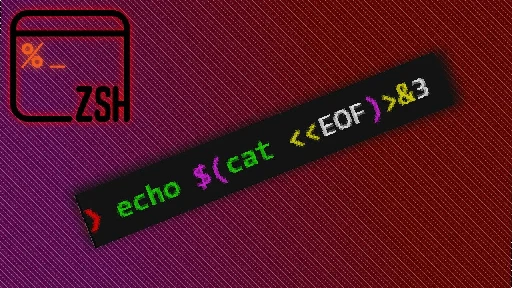- https://www.altap.cz/
- Files
- Double Commander
- Dolphin
- mucommander
In no particular order.
Ah yes you can tell by the post title:
best linux terminal emulator
For me: Wezterm. It does pretty much everything. I don't think Alacritty/Kitty etc. offer anything over it for my usage, and the developer is a pleasure to engage with.
Second place is Konsole -- it does a lot, is easy to configure, and obviously integrates nicely with KDE apps.
Honorable mention is Extraterm, which has been working on cool features for a long time, and is now Qt based.
8th - Commercial Forth-y Language
everything about the 8th cross-platform programming language
zdimension/macro-forth: some kind of RPN in rust via macros
Compile-time const Forth evaluation with macros. Contribute to zdimension/macro-forth development by creating an account on GitHub.

Idea: "ubiquefix" function-call syntax (prefix, infix, and postfix notation combined)
Explanation: https://gist.github.com/Dobiasd/bb9d38a027cf3164e66996dd9e955481
I am not the author.
Just note that the comment was inaccurate, in that their weird encryption is indeed open source at least.
PDF: https://storage.googleapis.com/gweb-research2023-media/pubtools/1004848.pdf
I'd say an important part of this calculator's interaction model is doing something, getting a result, then doing something else to that result. That's not too bad in the regular Python interpreter either.
For example, in Python:
>>> 5
5
>>> 4 + _
9
>>> 2 * _
18
In Stacker:
>>> 5
[5]
>>> 4 +
[9]
>>> 2 *
[18]
Does Hy have something like the Python interpreter's _?
So it looks like a totally different data flow style, and (I think) geared toward writing then running programs, whereas Stacker is more for interactive stack-oriented calculator tasks.
I've never used Hy. Does it offer any concatenative-style interaction?
remokasu/stacker: command-line RPN calculator with an RPN-based scripting language (on PyPI)
Stacker is a command-line calculator that uses reverse Polish notation (RPN) for mathematical calculations and features an RPN-based scripting language. - remokasu/stacker

I suggest trying this one for Zsh, over the more common one: https://github.com/zdharma-continuum/fast-syntax-highlighting
As someone else said, setting less' jump value is helpful.
Another tool I use, mostly for the zshall manpage, is https://github.com/kristopolous/mansnip
The Forth Deck mini: a portable Forth computer with a discrete CPU
Discussion on hacker news: https://news.ycombinator.com/item?id=40804122
Thanks, yes, I use nox and github actions for automated environments and testing in my own projects, and tox instead of nox when it's someone else's project. But for ad hoc, local and interactive multiple environments, I don't.
If it didn’t bring something more to the table, besides speed, no one would care
I'm literally saying its speed in certain operations makes an appreciable difference in my workflows, especially when operating on tens of venvs at a time. I don't know why you want to fight me on my own experience.
I'm not telling anyone who doesn't want to use uv to do so. Someone asked about motivation, and I shared mine.
The convention
That's one convention. I don't like it, I prefer to keep my venvs elsewhere. One reason is that it makes it simpler to maintain multiple venvs for a single project, using a different Python version for each, if I ever want to. It shouldn't matter to anyone else, as it's my environment, not some aspect of the shared repo. If I ever needed it there for some reason, I could always ln -s $VIRTUAL_ENV .venv.
Learn pyenv
I have used pyenv. It's fine. These days I use mise instead, which I prefer. But neither of them dictate how I create and store venvs.
Shell scripts within Python packages is depreciated
I don't understand if what you're referencing relates to my comment.
I have a pip-tools wrapper thing that now optionally uses uv instead. Aside from doing the pip-tools things faster, the main advantage I've found, and what really motivated me to support and recommend uv with it, is that uv creates new venvs MUCH faster than python's venv module, which is really annoyingly slow for that operation.
I use my own Zsh project (zpy) to manage venvs stored like ~/.local/share/venvs/HASH-OF-PROJECT-PATH/venv, so use zpy's vpy function to launch a script with its associated Python executable ad-hoc, or add a full path shebang to the script with zpy's vpyshebang function.
vpy and vpyshebang in the docs
If anyone else is a Zsh fan and has any questions, I'm more than happy to answer or demo.
As you learn Forth, it learns from you (1981)
I'm posting this mostly for the new hacker news discussion: https://news.ycombinator.com/item?id=40736174
New discussion on hacker news:
F: Functional False
> F is a pure functional concatenative language originally designed as an extension of False. F contains the list-operations of K3 and the dip combinator of Joy. Floating-point and symbolic datatypes are supported. One-time assignment is enforced in syntax. A theory of function-valence and -charge is outlined. F also contains a general continuation primitive $, and the pattern sublanguage of XY. G is a variant of F in which the K3 adverbs are implemented as primitives.
Discussion on lobsters: https://lobste.rs/s/m9xv5y/f_functional_false
From the author, on reddit:
Made a little mistake in there: you can create FDs with higher numbers using eg.
exec {fd}<>pipeand they'll generate numbers above 10, plus the variables'll be better for scripting.
ZLE tutorial #2 - File Descriptors, Networking, and More | Video

YouTube Video
Click to view this content.
This is not my own content!
Zsh Line Editor (ZLE) Tutorial | Video

YouTube Video
Click to view this content.
This is not my own content!
CLI flow: run command, print output below
TUI flow: navigate and interact with a layout that updates in place
Space Age
USING: assocs calendar math math.extras ;
CONSTANT: year-factors H{
{ "Mercury" 0.2408467 }
{ "Venus" 0.61519726 }
{ "Earth" 1.0 }
{ "Mars" 1.8808158 }
{ "Jupiter" 11.862615 }
{ "Saturn" 29.447498 }
{ "Uranus" 84.016846 }
{ "Neptune" 164.79132 }
}
: space-age ( seconds planet -- earth-years )
year-factors at
years duration>seconds
/
2 round-to-decimal ;
